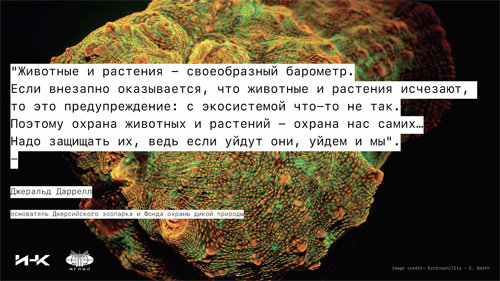Data set “Corporate social responsibility, sustainable development, and fighting climate change: imitation modeling and neural network analysis in regions of the world – 2022”
Просмотров: 2394
Climate change is a common problem of all humankind, which always existed but became especially important due to a range of reasons connected to high economic activities and technological progress. Firstly, over the whole history of life on the Earth and up until the First Industrial Revolution, which started in the 18 th century, climate change was predetermines by the natural processes. Industrial revolutions, which replaced each other, caused the artificial reasons of climate change.
Industrial production and consumption of its products led to thinning of the ozone layer, large dump sites (with a lot of products with large decomposition periods – e.g., polyethylene), and ecological disasters (e.g., oil leaks, usage of nuclear weapon, and atomic power stations accidents). This resulted in change of the Earth's polarity, global warming, decrease of biodiversity, critical depletion of resources, and aggravation of environment for human life. While natural factors cannot be controlled, artificial factors, which are created by a human, could and should be controlled for fighting climate change, preventing the depletion of natural resources, and restoring and supporting favorable conditions for life.
Secondly, recently climate change became especially vivid and led to clear negative consequences. Melting of glaciers became a reality, causing the risk of flooding of continents and defrosting of historical viruses, which could cause new global pandemics. Growth of air temperature makes new territory unfit for agriculture. The level of environment pollution has reached a critical point and requires mandatory regulation.
Thirdly, the opportunities that appeared due to dissemination of the leading technologies allow for significant progress in fighting climate change. In 2015, adoption of the new goals of sustainable development (successors of the millennium development goals) against the background of the Fourth Industrial Revolution reflected the current problems of the humankind and set achievable tasks before people. Thus, it is possible to expect that the sustainable development goals will be fully achieved by 2030.
Thus, it is necessary to take unprecedented measures for fighting climate change. An important role in this process belongs to information support for the regulatory measures of national governments and international organizations. Manifestations, factors, and consequences of climate change are shown in detail in the UN Sustainable Development Report, the World Bank data base on climate change, OECD analytics on Green growth and eco-innovation, and statistical data bases of various international organizations, among which are Dual Citizen and New Economics Foundation.
At the same time, the practices of fighting climate change are not sufficiently covered in the existing statistical data bases. Most of them focus on the practices of state regulation, which are brought down to implementation of ecological standards and financing of measures in the sphere of environment protection. A lot of covered practices cannot be measured and are brought down to qualitative description, which complicates conducting quantitative studies and forming an evidential basis of scientific works on the topic of sustainable development and fighting climate change.
A vivid example of filling the gaps in statistics is data set “European eco-innovation scoreboard interactive tool” of the European Commission. It contains detailed data on the topic of eco-innovations, “green” investments, eco-standardization and its observation at European companies, eco-innovation scientific activities (R&D), and effectiveness of using resources in the activities of entrepreneurship and social results. The data for 2010-2018 are available only for 28 countries of the EU, which allows only for narrow research, without the possibility of obtaining results on the global economy and inter-regional comparisons at the global level.
In order to solve the above problem, which consists in the fragmentary character and deficit of factual data on the global economy, the Institute of Scientific Communications created a data set, which covers all practices of provision of sustainable development and fighting climate change, which are predetermined by state regulation and market self-regulation. Special attention is paid to a new practice – corporate social responsibility, one of which directions if ecological responsibility as socially important activities.
The data set contains the following indicators on the implemented practices of corporate social responsibility, sustainable development, and fighting climate change (the higher the indicators' values, the better – unless otherwise specified):
1. Sustainable development and fighting climate change:
• Energy Trilemma Index. It is calculated by Visual Capitalist; it shows energy security, energy accessibility, and ecological sustainability and effectiveness of the energy sphere (the data for 2019 are available);
• Industrial profile of economy. This indicator is calculated by the Institute of Scientific Communications based on the World Bank data; it shows the structure of the extracting (industry) and manufacturing (manufacturing) industries in the structure of GDP (the lower the indicator's value, the better). The data for 2019 are available;
• Total natural resources rent (% of GDP). It is calculated by the World Bank; it shows the share of natural resources extraction in the structure of GDP (the lower the indicator's value, the better). The d ata for 2017 are available;
• Pollution Index. This indicator is calculated by Numbeo within the Quality of Life Index and shows the scale of environment pollution (the lower the indicator's value, the better). The data for 2016-2020 are available;
• Climate Index. This indicator is calculated by Numbeo within the Quality of Life Index and shows the scale of climate changes and the general state of the environment (the lower the indicator's value, the better). The data for 2016-2020 are available;
• Sustainable Development Index. This indicator is calculated by the UN and shows achievement of the sustainable development goals. The indicator for 2016-2019 is available.
2. State regulation of corporate social and ecological responsibility:
• Energy efficiency regulation – original title is “ 1.24. Energy efficiency regulation”. It is calculated by the Global Economic Forum, is included in “ The Global Competitiveness Report 2019”, and reflects the intensity of the government measures on providing energy efficiency by regulation of entrepreneurship. The indicator for 2019 is available;
• Renewable energy regulation - original title is “ 1.25. Renewable energy regulation”. It is calculated by th e Global Economic Forum, is included in “ The Global Competitiveness Report 2019”, and shows government requirements to circular use of energy in entrepreneurship. The indicator for 2019 is available;
• Environment-related treaties in force – original title is “1.26. Environment-related treaties in force”. It is calculated by t he Global Economic Forum, is included in “The Global Competitiveness Report 2019”, and shows the number of the existing standards on environment protection. The indicator for 2019 is available.
3. Market self-management of corporate social and ecological responsibility:
• Buyer sophistication – original title is “ 12.09 Buyer sophistication”. It is calculated by the Global Economic Forum, is included in “The Global Competitiveness Report 2019”, and reflects consumers' market power and the level of buyer sophistication. The data for 2018-2019 are available;
• Extent of market dominance - the original title is “7.02 Extent of market dominance”. It is calculated by t he Global Economic Forum, is included in “The Global Competitiveness Report 2019”, and shows the influence of competitive forces on the activities of entrepreneurship. The data for 2018-2019 are available;
• Trade openness. This indicator is calculated by the Global Economic Forum, is included in “The Global Competitiveness Report 2019”, and shows openness of customs borders;
• Entrepreneurial culture. This indicator is calculated by the Global Economic Forum, is included in “The Global Competitiveness Report 2019”, and shows susceptibility and inclination of entrepreneurship for changes, risk, and innovations. The data for 2018-2019 are available.
Advantages of the data set of the ISC :
• Consistency and authenticity: collection and systematization of the main statistical data in the data set, as well as their analysis with application of the proprietary methodology of calculation of the index of corporate fight against climate change , which allows determining the contribution of corporate social and ecological responsibility into provision of sustainable development in countries of the world and performing international comparisons;
• Topicality and representativeness: the data set contains the latest data, which form the basis of empirical studies in 2020;
• Reliability and objectivity: the data set contains the statistics of the respectable sources of statistical and expert & analytical data on the topic of social entrepreneurship – namely, the World Bank , Visual Capitalist, Numbeo, and the UN (UNDP);
• Informative value: the data set presents the current international statistics in the Russian language;
• Clarity of the structure: in order to make the work with the data set simple, quick, and convenient for users, it consists of thematic parts;
• Templates: the data set offers two templates of data: countries of G7 (developed) and countries of BRICS (developing), countries of the CIS, countries of the EAEU, geographical templates of regions of the world, and templates of categories of countries that are distinguished by the ISC by the criterion of sustainable development and fighting climate change – which allows for quick selection of the necessary data for economic experiments, aimed at comparison of countries of different thematic categories in real time;
• Import of data: the data set allows selecting the necessary information and importing it in Microsoft Excel for further analytics;
• Interactivity: the data set allows sorting and combining various data, unifying them in the general data array in the way that is required by each user;
• Ranking: the data has been used for compiling a ranking of sustainable development and fighting climate change based on corporate social and ecological responsibility in countries of the world in 2020;
• Blockchain principle: firstly, the data are structured logically according to the blockchain principle; secondly, the data set allows sharing, changing, and processing information as per users' queries'; the initial data remain unchanged, which is very convenient and secure;
• Imitation modeling and neural network analysis: the data models the ratio of the regulatory and market factors in provision of corporate social and ecological responsibility, achievement of sustainable development, and fighting climate changes in geographical regions of the world in 2020, which allows for thorough research on the topic of the data set in view of the specific features of the regional economy. The results of modeling are shown in the form of a cognitive map.











